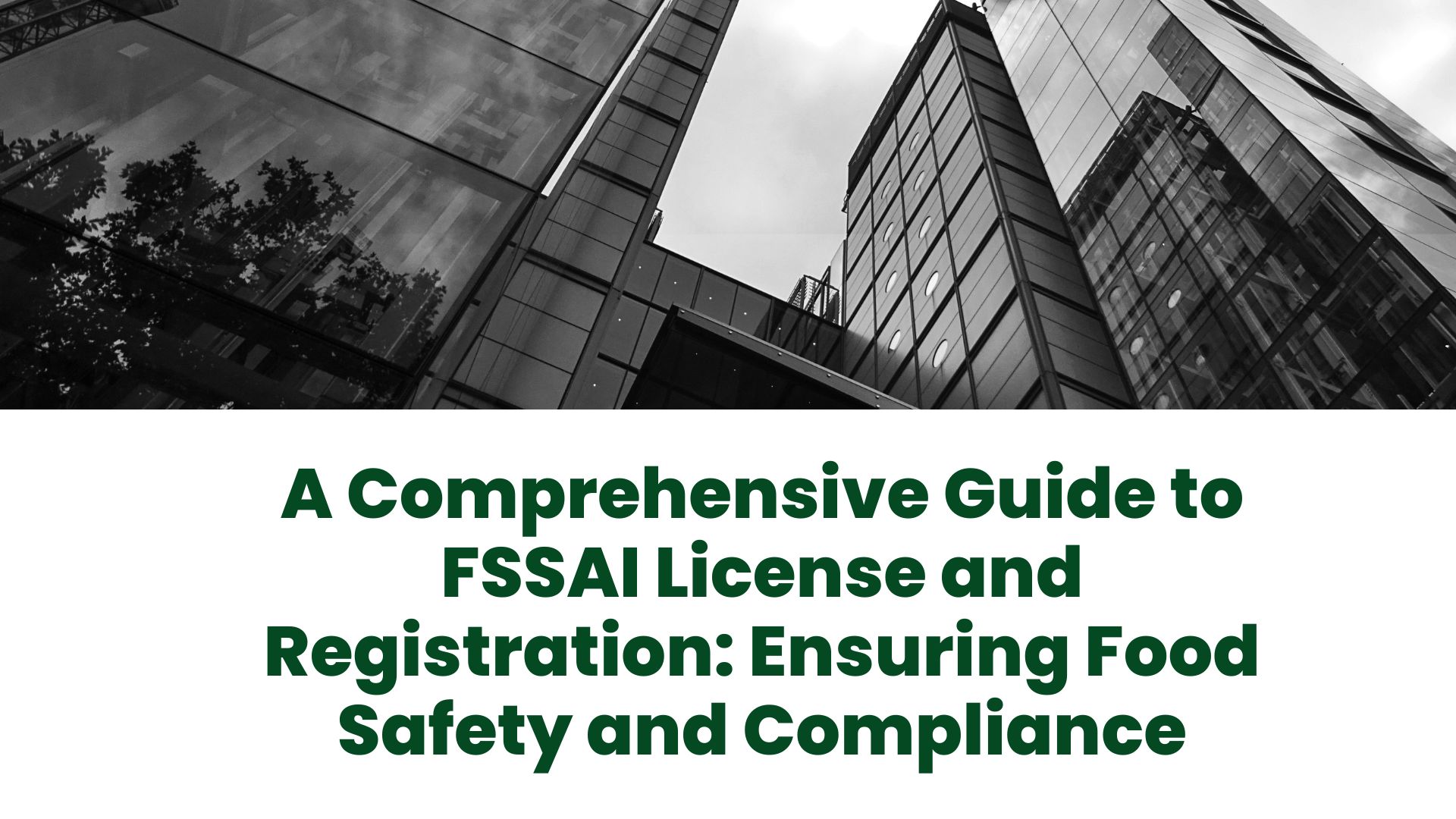Introduction:
In the dynamic landscape of the food industry, ensuring the safety and quality of consumables is paramount. The Food Safety and Standards Authority of India (FSSAI) plays a pivotal role in regulating and overseeing food safety to safeguard public health. This comprehensive guide aims to elucidate the intricacies of obtaining an FSSAI License and Registration, shedding light on the significance of compliance with food safety norms.
Understanding FSSAI and its Mandate
The Food Safety and Standards Authority of India (FSSAI) is an autonomous body established under the Food Safety and Standards Act, 2006. Its primary objective is to regulate the manufacture, storage, distribution, sale, and import of food items, ensuring they meet the prescribed standards.
Types of FSSAI Licenses
FSSAI issues three main types of licenses:
- Basic Registration: For small businesses with an annual turnover of up to ₹12 lakhs.
- State License: Applicable to medium-sized enterprises with an annual turnover exceeding ₹12 lakhs.
- Central License: Mandatory for large-scale businesses and those engaged in food import, export, and manufacturing.
This chapter will delve into the eligibility criteria, documentation, and process for obtaining each type of license.
Application Process and Documentation
Navigating the application process can be intricate. This section will guide you through the step-by-step procedure of applying for an FSSAI License, including the requisite documentation. Understanding the importance of accurate and complete paperwork is emphasized to expedite the approval process.
Renewal and Modification of FSSAI License
Once granted, an FSSAI License is valid for a specific period. Learn about the renewal process and the significance of timely renewal to avoid penalties. Additionally, this chapter will explore the procedures for modifying existing licenses to accommodate changes in business operations.
Importance of FSSAI Compliance in the Food Industry
Compliance with FSSAI regulations is not only a legal requirement but also a crucial aspect of building trust with consumers. This section will elaborate on the implications of non-compliance, the penalties involved, and the benefits of adhering to FSSAI standards for business sustainability.
FSSAI and Food Safety Audits
Understanding the role of food safety audits in maintaining compliance is imperative. This chapter will shed light on the audit process, its objectives, and how businesses can prepare for and successfully navigate through an FSSAI audit.
FSSAI in a Global Context
Explore the international relevance of FSSAI standards and the impact on businesses engaged in the export and import of food products. Learn about the harmonization of standards to facilitate global trade while upholding stringent food safety measures.
Role of Technology in FSSAI Compliance
In the modern era, technology plays a pivotal role in streamlining processes and ensuring efficient compliance. This chapter explores how businesses can leverage technology for easier license applications, real-time monitoring of food safety parameters, and automated reporting to meet FSSAI requirements seamlessly.
FSSAI and Food Labeling Regulations
Understanding the nuances of food labeling is crucial for FSSAI compliance. This chapter delves into the specific requirements for food packaging and labeling, including mandatory information, nutritional labeling, and allergen declarations. Compliance with these regulations not only ensures legal adherence but also aids consumers in making informed choices.
FSSAI Training and Capacity Building
Continuous education and training are vital for maintaining a culture of food safety within an organization. This chapter discusses the various training programs and capacity-building initiatives offered by FSSAI. Discover how investing in employee education can enhance compliance, reduce incidents, and contribute to an overall culture of food safety.
FSSAI and Small-scale Food Entrepreneurs
Small-scale and home-based food businesses have a significant role in the food industry. This chapter focuses on the specific challenges and considerations for these entrepreneurs in obtaining FSSAI licenses. It provides practical insights into compliance tailored to the scale of their operations.
Public Awareness and FSSAI Initiatives
FSSAI actively engages in public awareness campaigns to educate consumers and businesses about food safety. This chapter explores the various initiatives taken by FSSAI to promote awareness, including campaigns, workshops, and collaborations with stakeholders. Understanding these initiatives can enhance the overall food safety ecosystem.
Note: You Can Apply for FSSAI Certificate Renewal
Conclusion: Ensuring Food Safety for a Healthy Nation
In conclusion, this guide serves as a comprehensive resource for businesses and individuals seeking clarity on FSSAI License and Registration. Adhering to FSSAI standards is not just a legal obligation but a commitment to ensuring the safety and well-being of consumers. Stay informed, stay compliant, and contribute to building a healthier and safer food ecosystem.

